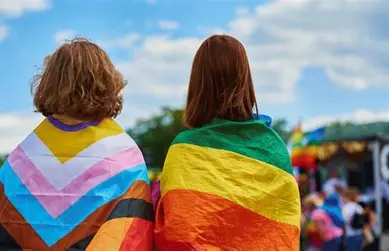Politicians Weaponize Anti-LGBTQ+ Rhetoric Globally
By Isha - Sep 15, 2025
Politicians in 51 countries are using anti-LGBTQ+ rhetoric as a strategic tactic in elections, exploiting marginalized communities to gain votes and power. This global pattern of portraying LGBTQ+ individuals as threats to traditional values fuels fear and division, resulting in increased hate crimes and discriminatory laws. Experts emphasize the need for international advocacy, education on diversity, and accountability measures to counter this dangerous trend and protect human rights.

Image via Newfutures.org
A new study has revealed that politicians in at least 51 countries have used anti-LGBTQ+ rhetoric as a deliberate political strategy during elections. The findings highlight a troubling global pattern where marginalized communities are exploited to gain votes, inflame cultural divisions, and consolidate power. The rhetoric often portrays LGBTQ+ individuals as threats to traditional values, national identity, or social stability, fostering an environment of fear and hostility.
Researchers note that this weaponization of identity politics is not confined to one region but spans continents, from parts of Africa and Eastern Europe to Asia and Latin America. In many of these countries, candidates have framed LGBTQ+ rights as a foreign or Western imposition, using this narrative to appeal to nationalist sentiments. This strategy has proven effective in mobilizing conservative bases while silencing progressive voices advocating for inclusivity and human rights.
The consequences of such rhetoric extend far beyond campaign trails. Human rights organizations report an increase in hate crimes, discriminatory legislation, and societal polarization whenever political leaders resort to anti-LGBTQ+ messaging. In several cases, governments have used these narratives to justify curtailing freedoms, censoring media, and undermining judicial protections for minority groups. For LGBTQ+ individuals, the fallout includes heightened vulnerability, reduced access to justice, and a chilling effect on activism.
Experts warn that unless addressed, this trend could normalize intolerance and erode democratic norms worldwide. They call for stronger international advocacy, education on diversity, and accountability mechanisms for political leaders who fuel discrimination. Civil society organizations stress the importance of amplifying LGBTQ+ voices and fostering solidarity across borders. As elections continue to shape the political landscapes of many nations, the persistence of this rhetoric underscores the urgent need to safeguard human rights and ensure that democratic processes do not become vehicles for hate.


